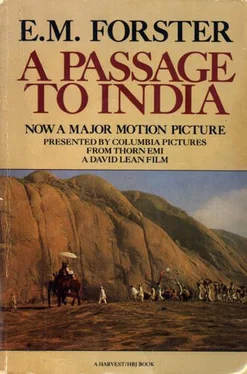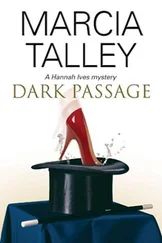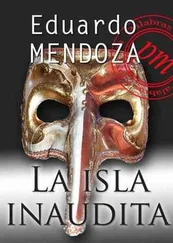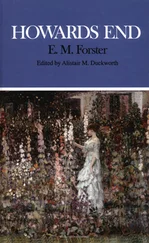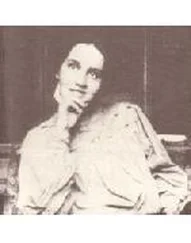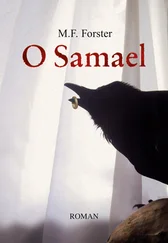Still, the men tolerated him for the sake of his good heart and strong body; it was their wives who decided that he was not a sahib really. They disliked him. He took no notice of them, and this, which would have passed without comment in feminist England, did him harm in a community where the male is expected to be lively and helpful. Mr. Fielding never advised one about dogs or horses, or dined, or paid his midday calls, or decorated trees for one's children at Christmas, and though he came to the club, it was only to get his tennis or billiards, and to go. This was true. He had discovered that it is possible to keep in with Indians and Englishmen, but that he who would also keep in with Englishwomen must drop the Indians. The two wouldn't combine. Useless to blame either party, useless to blame them for blaming one another. It just was so, and one had to choose. Most Englishmen preferred their own kinswomen, who, coming out in increasing numbers, made life on the home pattern yearly more possible. He had found it convenient and pleasant to associate with Indians and he must pay the price. As a rule no Englishwoman entered the College except for official functions, and if he invited Mrs. Moore and Miss Quested to tea, it was because they were new-comers who would view everything with an equal if superficial eye, and would not turn on a special voice when speaking to his other guests.
The College itself had been slapped down by the Public Works Department, but its grounds included an ancient garden and a garden-house, and here he lived for much of the year. He was dressing after a bath when Dr. Aziz was announced. Lifting up his voice, he shouted from the bedroom, "Please make yourself at home." The remark was unpremeditated, like most of his actions; it was what he felt inclined to say.
To Aziz it had a very definite meanng. "May I really, Mr. Fielding? It's very good of you," he called back; "I like unconventional behaviour so extremely." His spirits flared up, he glanced round the living-room. Some luxury in it, but no order—nothing to intimidate poor Indians. It was also a very beautiful room, opening into the garden through three high arches of wood. "The fact is I have long wanted to meet you," he continued. "I have heard so much about your warm heart from the Nawab Bahadur. But where is one to meet in a wretched hole like Chandrapore?" He came close up to the door. "When I was greener here, I'll tell you what. I used to wish you to fall ill so that we could meet that way." They laughed, and encouraged by his success he began to improvise. "I said to myself, How does Mr. Fielding look this morning? Perhaps pale. And the Civil Surgeon is pale too, he will not be able to attend upon him when the shivering commences. I should have been sent for instead. Then we would have had jolly talks, for you are a celebrated student of Persian poetry."
"You know me by sight, then."
"Of course, of course. You know me?"
"I know you very well by name."
"I have been here such a short time, and always in the bazaar. No wonder you have never seen me, and I wonder you know my name. I say, Mr. Fielding?"
"Yes?"
"Guess what I look like before you come out. That will be a kind of game."
"You're five feet nine inches high," said Fielding, surmising this much through the ground glass of the bedroom door.
"Jolly good. What next? Have I not a venerable white beard?"
" Blast!
"Anything wrong?"
"I've stamped on my last collar stud."
"Take mine, take mine."
"Have you a spare one?"
"Yes, yes, one minute."
"Not if you're wearing it yourself."
"No, no, one in my pocket." Stepping aside, so that his outline might vanish, he wrenched off his collar, and pulled out of his shirt the back stud, a gold stud, which was part of a set that his brother-in-law had brought him from Europe. " Here it is," he cried.
"Come in with it if you don't mind the unconventionality."
"One minute again." Replacing his collar, he prayed that it would not spring up at the back during tea. Fielding's bearer, who was helping him to dress, opened the door for him.
"Many thanks." They shook hands smiling. He began to look round, as he would have with any old friend. Fielding was not surprised at the rapidity of their intimacy. With so emotional a people it was apt to come at once or never, and he and Aziz, having heard only good of each other, could afford to dispense with preliminaries.
"But I always thought that Englishmen kept their rooms so tidy. It seems that this is not so. I need not be so ashamed." He sat down gaily on the bed; then, forgetting himself entirely, drew up his legs and folded them under him. "Everything ranged coldly on shelves was what I thought.—I say, Mr. Fielding, is the stud going to go in?"
"I hae ma doots."
"What's that last sentence, please? Will you teach me some new words and so improve my English?"
Fielding doubted whether "everything ranged coldly on shelves" could be improved. He was often struck with the liveliness with which the younger generation handled a foreign tongue. They altered the idiom, but they could say whatever they wanted to say quickly; there were none of the babuisms ascribed to them up at the club. But then the club moved slowly; it still declared that few Mohammedans and no Hindus would eat at an Englishman's table, and that all Indian ladies were in impenetrable purdah. Individually it knew better; as a club it declined to change.
"Let me put in your stud. I see… the shirt back's hole is rather small and to rip it wider a pity."
"Why in hell does one wear collars at all?" grumbled Fielding as he bent his neck.
"We wear them to pass the Police."
"What's that?"
"If I'm biking in English dress—starch collar, hat with ditch—they take no notice. When I wear a fez, they cry, 'Your lamp's out!' Lord Curzon did not consider this when he urged natives of India to retain their picturesque costumes.—Hooray! Stud's gone in.—Sometimes I shut my eyes and dream I have splendid clothes again and am riding into battle behind Alamgir. Mr. Fielding, must not India have been beautiful then, with the Mogul Empire at its height and Alamgir reigning at Delhi upon the Peacock Throne?"
"Two ladies are coming to tea to meet you—I think you know them."
"Meet me? I know no ladies."
"Not Mrs. Moore and Miss Quested?"
"Oh yes—I remember." The romance at the mosque had sunk out of his consciousness as soon as it was over. "An excessively aged lady; but will you please repeat the name of her companion?"
"Miss Quested."
"Just as you wish." He was disappointed that other guests were coming, for he preferred to be alone with his new friend.
"You can talk to Miss Quested about the Peacock Throne if you like—she's artistic, they say."
"Is she a Post Impressionist?"
"Post Impressionism, indeed! Come along to tea. This world is getting too much for me altogether."
Aziz was offended. The remark suggested that he, an obscure Indian, had no right to have heard of Post Impressionism—a privilege reserved for the Ruling Race, that. He said stiffly, "I do not consider Mrs. Moore my friend, I only met her accidentally in my mosque," and was adding "a single meeting is too short to make a friend," but before he could finish the sentence the stiffness vanished from it, because he felt Fielding's fundamental good will. His own went out to it, and grappled beneath the shifting tides of emotion which can alone bear the voyager to an anchorage but may also carry him across it on to the rocks. He was safe really—as safe as the shore-dweller who can only understand stability and supposes that every ship must be wrecked, and he had sensations the shore-dweller cannot know. Indeed, he was sensitive rather than responsive. In every remark he found a meaning, but not always the true meaning, and his life though vivid was largely a dream. Fielding, for instance, had not meant that Indians are obscure, but that Post Impressionism is; a gulf divided his remark from Mrs. Turton's "Why, they speak English," but to Aziz the two sounded alike. Fielding saw that something had gone wrong, and equally that it had come right, but he didn't fidget, being an optimist where personal relations were concerned, and their talk rattled on as before.
Читать дальше
